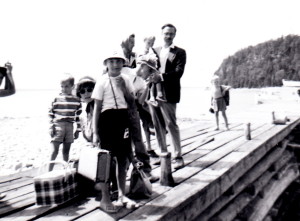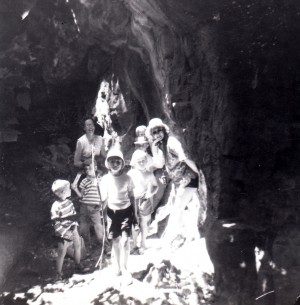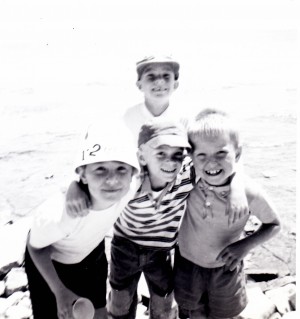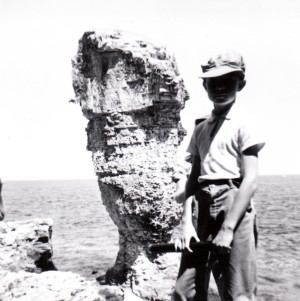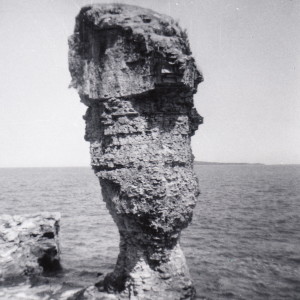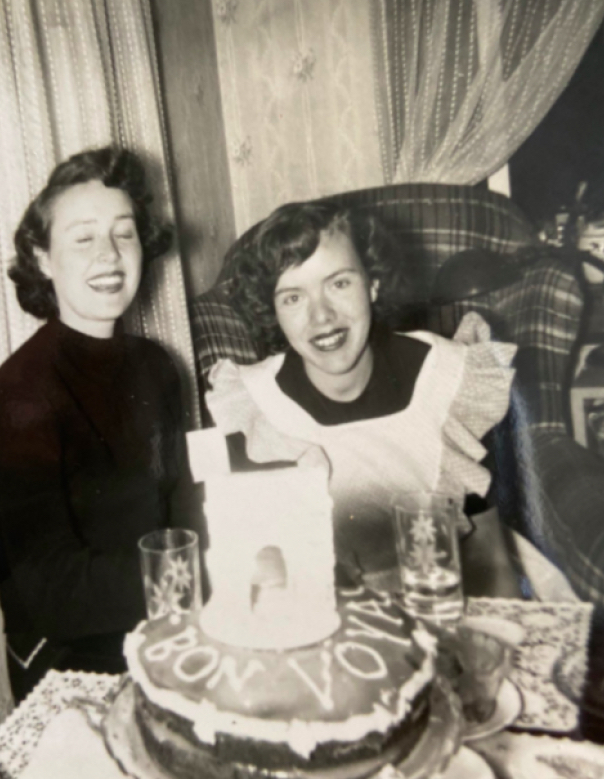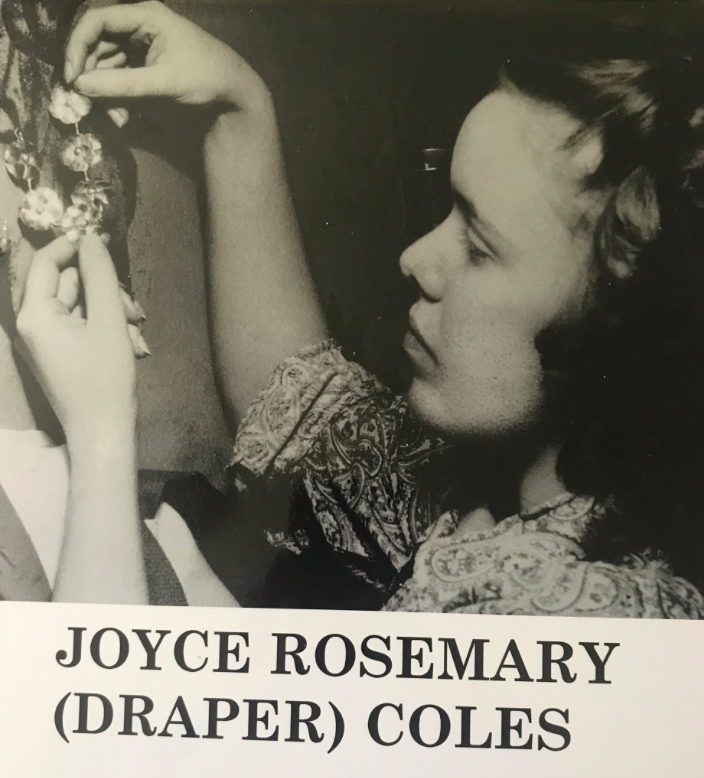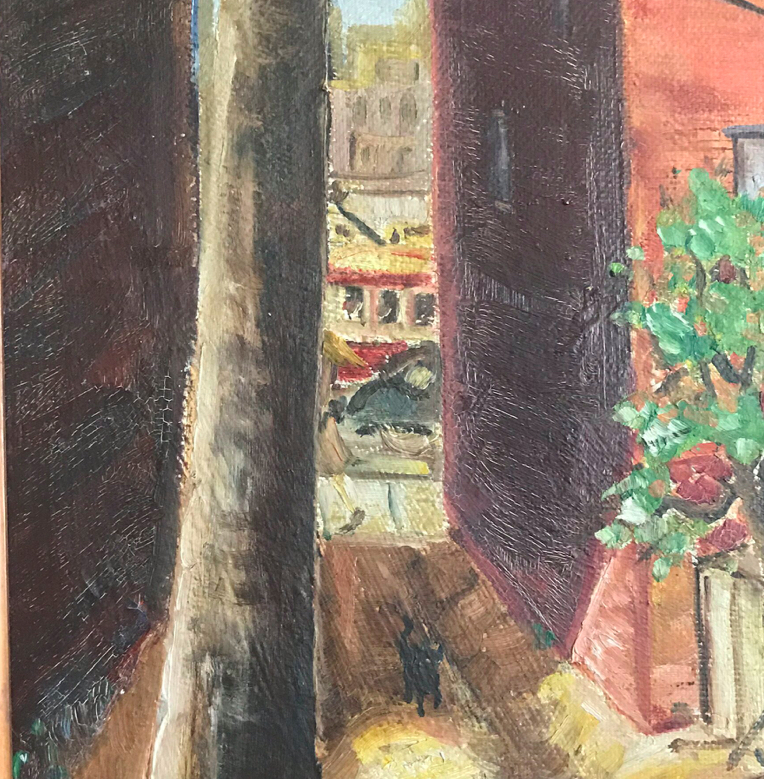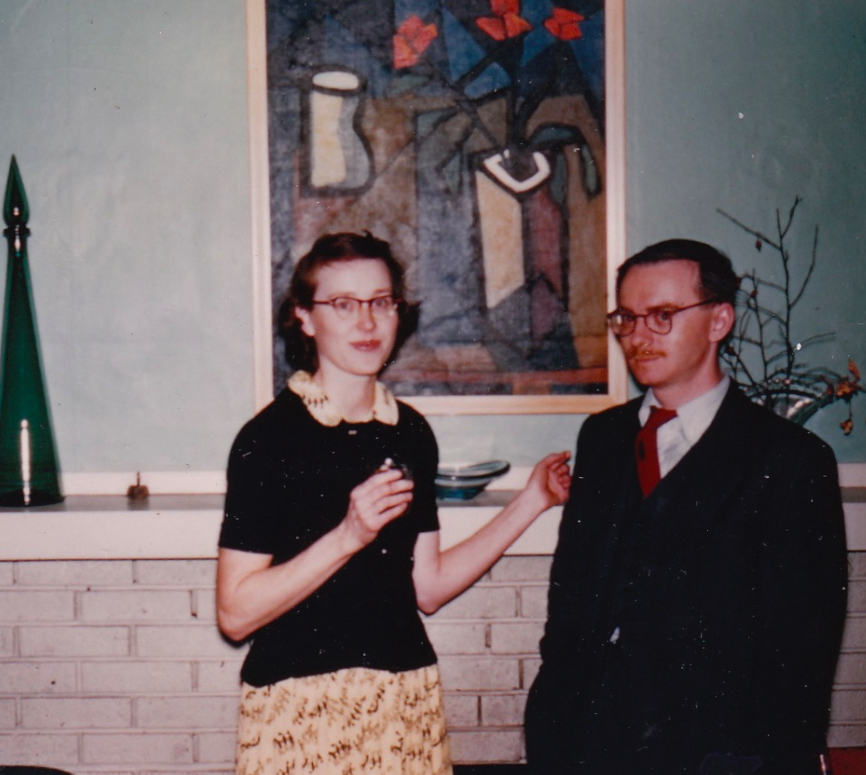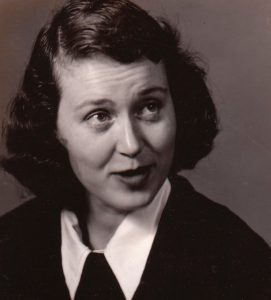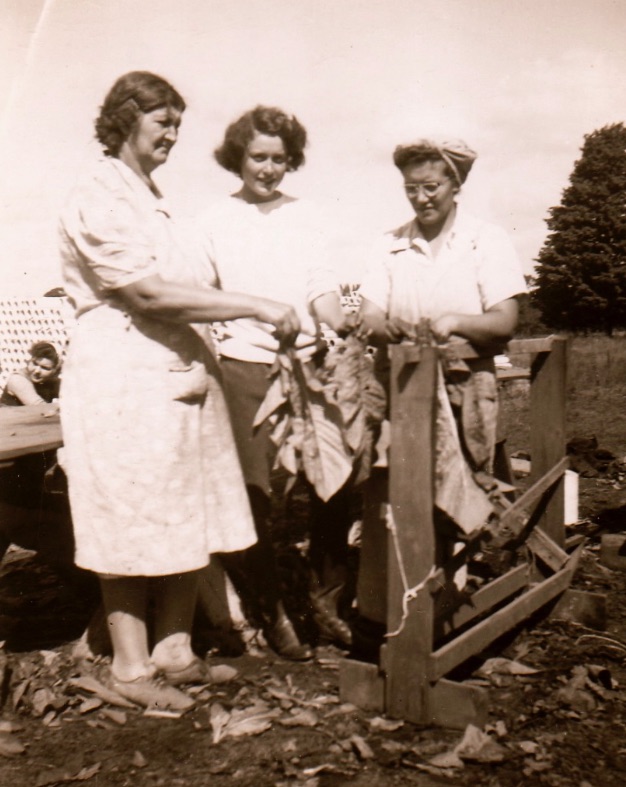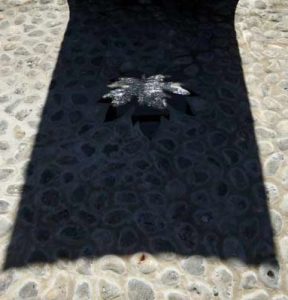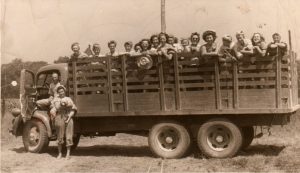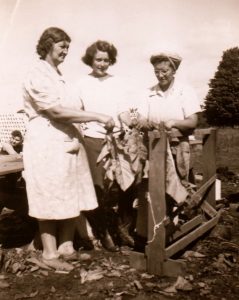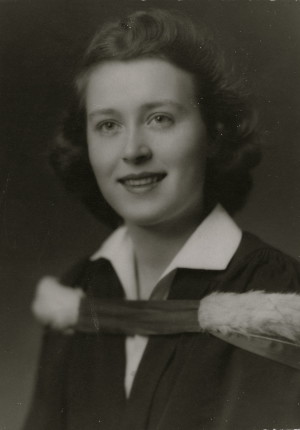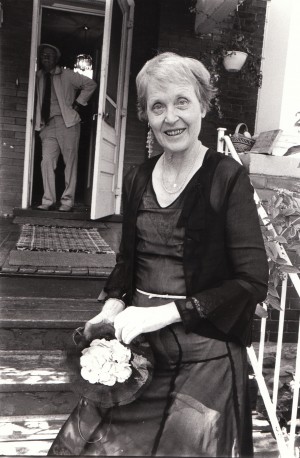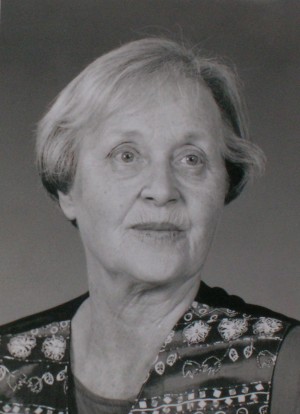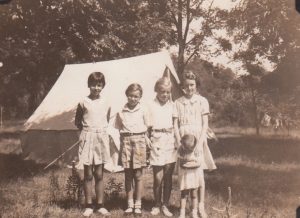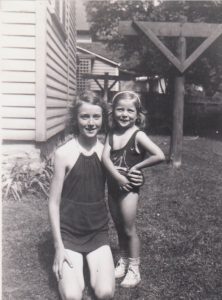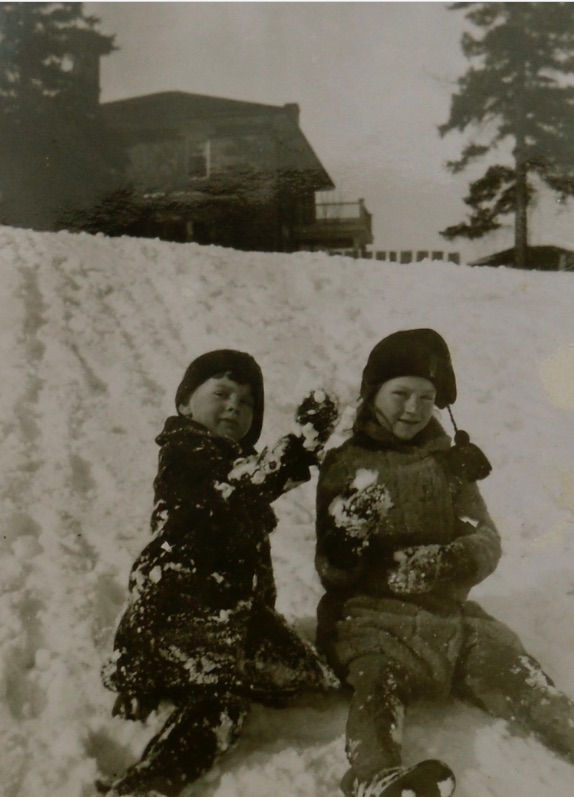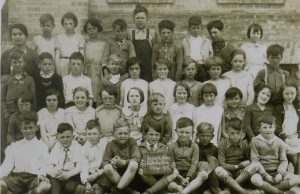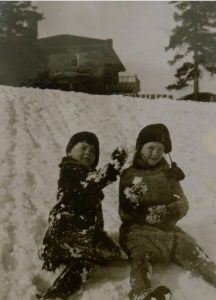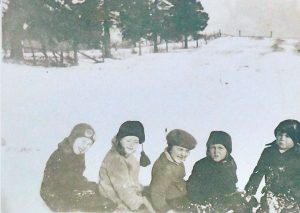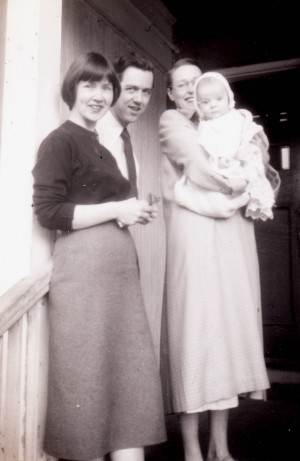
Note from Susan Reaney: In August 1956, Colleen and her husband James Reaney and their young sons (James (age 3 1/2) and John (age 2)) spent the afternoon with dear friends John and Pamela Beckwith and their children (Robin Jane, Jonathan, and baby Simon) in Toronto. Colleen later wrote the playlet and sent it to Margaret Beckwith, the Beckwith children’s grandmother.
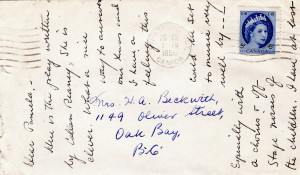
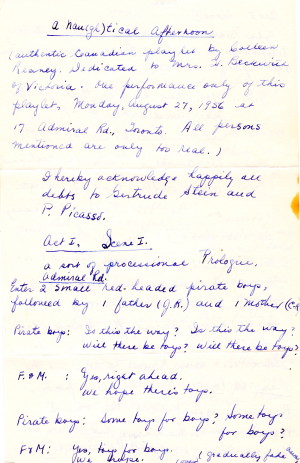
(The photographs are from earlier and later visits with the Beckwiths and from the Reaneys home in Winnipeg.)
A Nau(gh)tical Afternoon
(Authentic Canadian playlet by Colleen Thibaudeau. Dedicated to Mrs. H. Beckwith of Victoria. One performance only of this playlet, Monday August 27, 1956 at 17 Admiral Road, Toronto. All persons mentioned are only too real.)
I hereby acknowledge happily all debts to Gertrude Stein and P. Picasso.
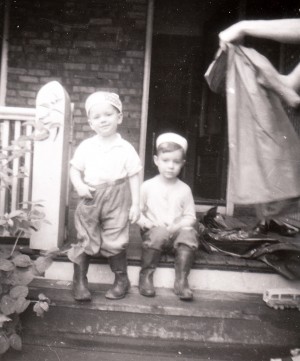
Act I, Scene I
Prologue
A sort of processional
Admiral Road
Enter 2 small red-headed pirate boys, followed by 1 father (J.R.) and 1 mother (C.T.).
Pirate boys: Is this the way? Is this the way? Will there be toys? Will there be toys?
F & M: Yes, right ahead. We hope there’s toys.
Pirate boys: Some toys for boys? Some toys for boys?
F & M: Yes, toys for boys. We hope.
(Gradually fade away.)
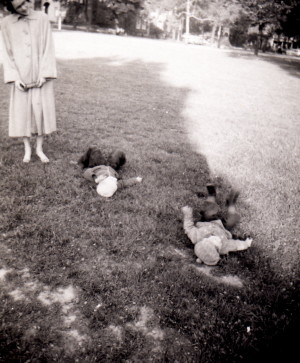
Act I, Scene II
John Beckwith discovered leaning into the telephone in his front hall, arranging his CBC programmes.
John: Yes, then slip on that platter, see… no I spelled it B a c h. B as in Beckwith, Then the continuity and after that, two minutes on the… [sees 4 Reaneys at his door] life… Hi, just a sec… the back yard?… then? No never mind ‘a sec’. Continue with that second disc… look, never mind the back yard—who?? O, he won’t walk. Sit down… you know the one… the mass is last [2 Reaneys pass through] you know the one I mean [and 2 Reaneys sit down in the parlour near A Baby Carriage].
Act I, Scene III
F & M: Isn’t he sweet! Something like Robin Jane. And quiet too. Imagine that! What lovely names.
John: Just stay right there.
F & M: The children like the yard – it’s safer, quieter: they’re all wrought up. Today at 8 we docked at Port McNicholl…
Mother: Wonderful trip – sort of rough on Lake Superior as usual. James Stewart told the waiter, his Grandpa could take his teeth out! And one day all through the Dining Room he recited this ditty:
Big bears make a big stink
AND
Little bears make a little stink.
Father: That’s Winnipeg for you. Now that we moved into town there, they meet all sorts of sinister influences. One great menace called Dunnery…
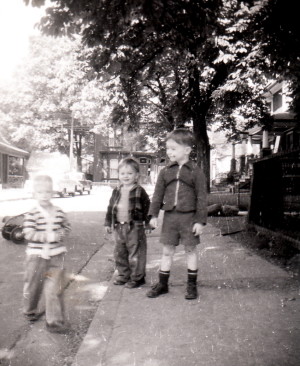
Mother: The times I’ve pulled him out of snowbanks—!
F & M: Yes, up at 6… and off the boat at 8… 3 hours by train… the subway up to your place, then the bus.
Mother: Walking was hardest; we’re getting our landlegs.
F & M: And you? And you? Are the children sleeping? Where is Pam? How do you think the Stratford Players will do at Edinburgh? Are you on holiday, John?
John: Yes, more or less. We didn’t move around too much this summer. “Waiting for Simon”— title for a rightest play. Got up to hear Glenn Gould though—lovely things—but maybe overlong for what he had.
Enter Pam and Joan Trimbell, a neighbour (whom Rs know).
Pam and John: Hello, Hello.
Interlude
(Offstage chorus of all her friends and relatives) … Slowly and with varying emphasis.
— How does it feel?
O how? O say, O tell, O do
(How are you?)
How does it feel to be a mother,
A mother,
A mother
Of three?
Three!
3.
3 little children
One’s a girl. Yes, the first one
Is definitely a girl.
Her name is Robin Jane.
A pretty name.
And then the second?
Another girl?? NO!
No?
NO! Definitely not.
The second is a boy called Jonathan.
Jonathan.
Jonathan what?
or?
What Jonathan?
I’ve forgotten. So have I.
But his godfather Jamie and his grandmother Beckwith will know.
And the third I know.
So do I.
So do I.
Just three weeks to-day.
So they say.
Sleeps like a top. Isn’t that lovely.
Simon Francis. Isn’t that lovely.
Elegant name.
Edwardian name.
Modern name.
Sensible name. Isn’t that lovely.
And the mother?
Mother of three.
How does it feel to be a mother of 3?
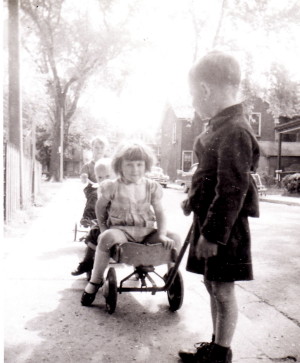
Act I, Scene IV
Pamela: Hello, I will get them up.
Robin Jane [she was already up; historical error] and Jonathan.
Jonathan is huge.
Wait till you see him.
[John: Wait till you lift him.]
Pam: And then we will have tea.
Pirate boys: And then we will have tea.
Have tea.
Are there any more toys?
Are there any more toys?
We’ve worn out these toys.
(Pamela, two pirate boys Exit into house.)
End of Act I
Act II, Scene 1
[Enter Pamela wearing pink sweater, blue skirt carrying huge tray with tea.
Followed by Robin in turquoise Vyella frock, carrying small tray of lemonade.
Followed by Jonathan in blue Dutch boy overalls bearing a dolly.]
Pirate boys: Is that Jonathan?
Is it?
Is it?
Is he tough?
End of Act II
Act III, Scene 1
Reaneys leave in a taxi.
(S.F. and Pamela offstage with bottle, assisted by R.J.)
F & M: Goodbye. Goodbye.
And thanks so much. For everything.
We’re off to Stratford for a while.
Until we find a house.
Jamie’s father should be there already. Came ahead by train.
Father: Well, I’ll see you soon.
Yes, I’ll be down to get a house.
John: Yes, let us know.
You could stay next door perhaps. To be one year in Toronto will be interesting–at least.
2 pirates (muffled): We want more toys.
More toys.
More trucks.
More cars. Where were the trucks, the other trucks and cars?
Mother: I’m haunted by one thing. Your mother, John—Her holly gift and that Stupendous Christmas card
We really loved.
I never really wrote to thank—
John: She’d understand—
Mother: but on the farm, there’s time.
I’ll write and tell her how well you all look and that we saw young Simon briefly—how pretty Robin Jane is, her complexion, and Jonathan a pet.
Father: Well, Union Station, please.
F, M & 2 p.b.: Good bye. Goodbye
And thanks for all you’ve done.
End of Act III
Epilogue
Father [on telephone to his mother]:
Well September 11th, and it’s signed, the lease, more than we want to pay, but garage to rent etc. and a furnished place is sensible for a year’s leave of absence. For one year on a PhD.
Now come October 1st, we can move down to 14 Montague St. Toronto, Ontario.
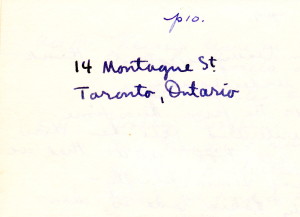
♦♦♦♥♦♦♦
Thank you Robin McGrath of Stone Cold Press for publishing a chapbook version of A Nau(gh)tical Afternoon in 2010 (ISBN 978-0-9866750-2-7) — like the original, a labour of love.
The Reaneys and Beckwiths enjoyed future summer visits together with their children. Here are pictures of the pirate children’s visit to Tobermoray and Flower Pot Island in 1962:
